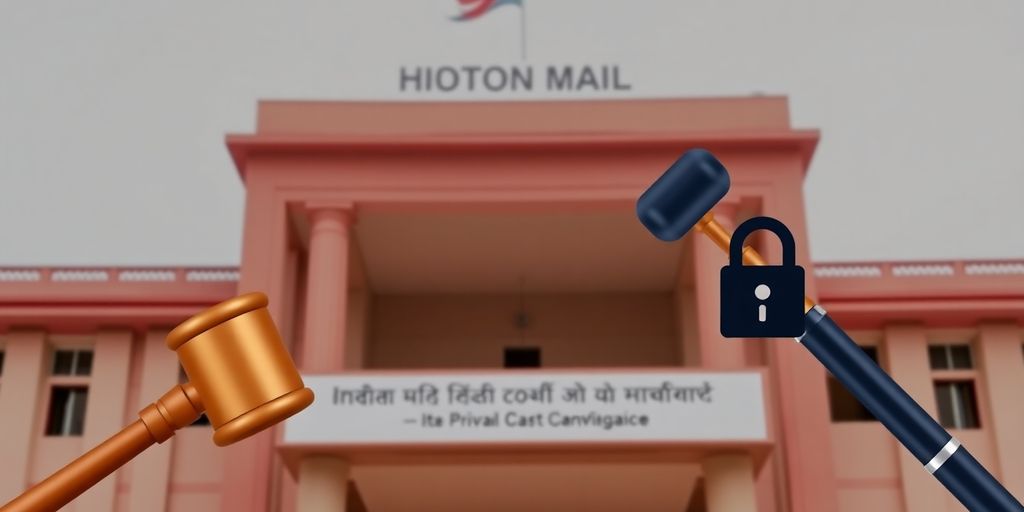A recent ruling by the High Court of Karnataka in India has ordered the government to block access to the encrypted email service Proton Mail. This decision follows a complaint alleging that employees of a New Delhi-based design firm received offensive emails through the platform, raising significant concerns about privacy and government oversight in the digital space.
Key Takeaways
- The High Court of Karnataka has ordered the blocking of Proton Mail in India.
- The ruling stems from a complaint regarding offensive emails received by employees of a design firm.
- Proton Mail has previously resisted sharing user information with authorities.
- The decision reflects a broader trend of regulatory scrutiny on privacy-focused platforms.
Background of the Case
The order was issued during a hearing on April 29, where Justice M Nagaprasanna directed the government to take immediate action to block domain names associated with Proton Mail. This ruling is based on the authority granted under the Information Technology Act of 2008, which allows the government to restrict access to online services under certain circumstances.
The complaint that triggered this legal action was filed in January by a design firm in New Delhi. The firm claimed that some of its employees had received offensive emails through Proton Mail, prompting them to seek legal recourse.
Implications of the Ruling
The implications of this ruling could be far-reaching, particularly for users who rely on Proton Mail for secure communication. The service is known for its strong privacy features, which include end-to-end encryption and a commitment to not logging user data. However, the court’s order raises questions about the future of privacy-focused services in India.
Proton Mail has previously faced similar challenges. In March 2024, Indian authorities proposed blocking the service in response to alleged hoax bomb threats, but the platform continued to operate at that time. It remains uncertain whether this latest ruling will lead to an actual ban or if it will face legal challenges.
Global Context of Privacy Regulations
The crackdown on Proton Mail is part of a larger global trend where governments are increasingly scrutinizing digital platforms based on user activities. For instance, the arrest of Telegram founder Pavel Durov in France highlighted the challenges faced by platforms that do not adequately moderate content.
In Spain, Proton AG, the Swiss company behind Proton Mail, provided user information to authorities in 2024, raising concerns among privacy advocates about the security of their data with centralized services.
The Indian Digital Landscape
India’s digital landscape is complex, especially regarding cryptocurrency and privacy. The country has over 100 million digital asset holders, yet users face a 30% tax on profits from crypto trading, which has been in effect since April 2022. Regulatory oversight is increasing, and firms operating in this space must navigate a challenging environment.
The Indian government has previously imposed sanctions on various digital services, reflecting a trend of legal crackdowns aimed at curtailing activities deemed inappropriate or illegal. This latest ruling against Proton Mail may signal a shift towards more stringent regulations for privacy-focused platforms in India.
As the situation develops, it will be crucial to monitor how Proton Mail responds to the court’s order and whether it can continue to operate in India without compromising its commitment to user privacy.








